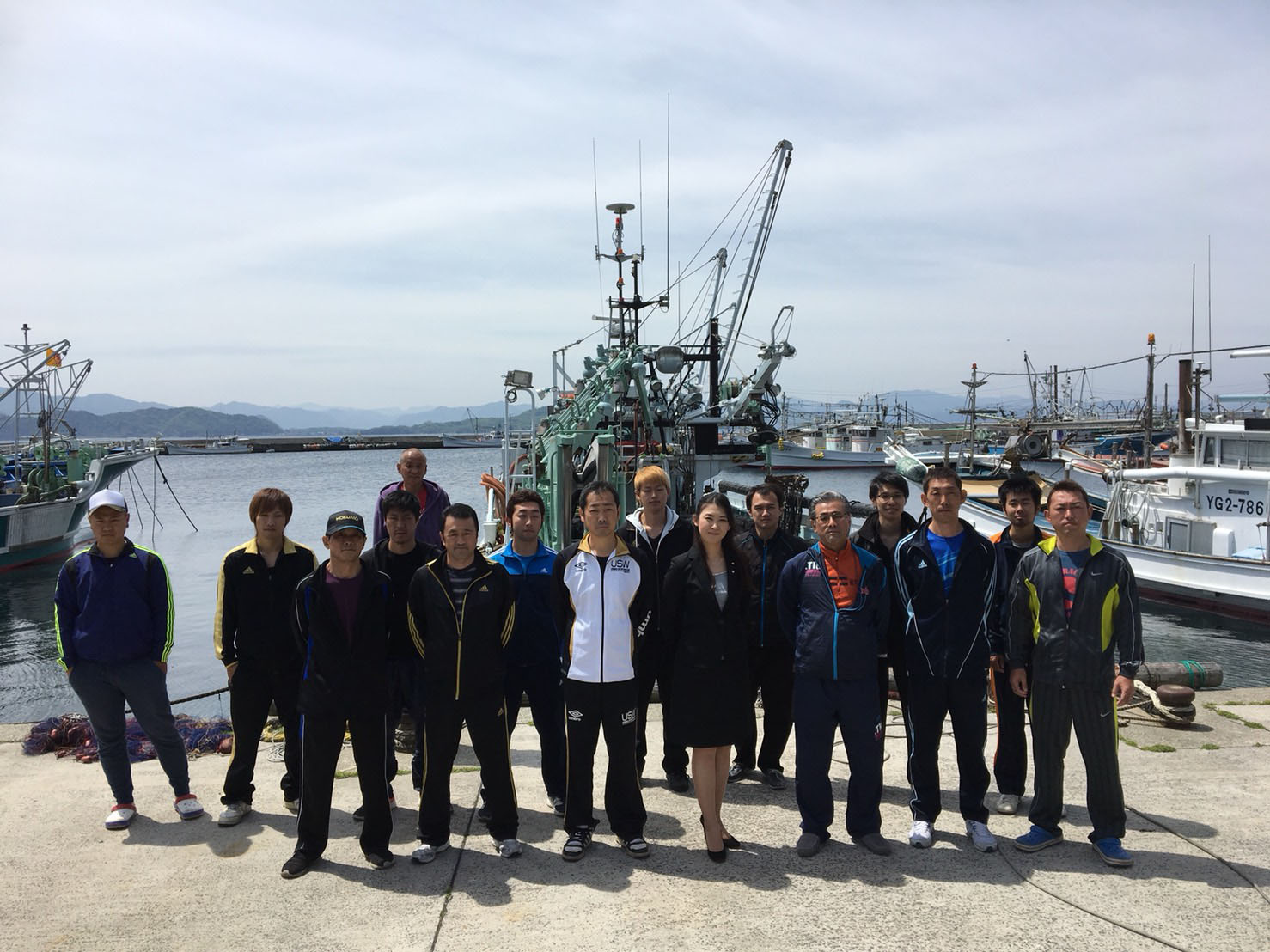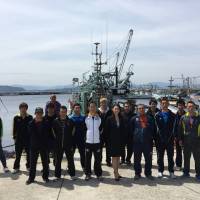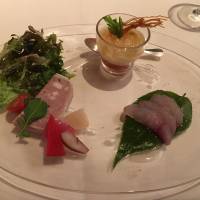Hagi Oshima Sendanmaru is a fishing fleet consisting of about 60 fishermen on Oshima Island in Hagi, Yamaguchi Prefecture. Since 2011, Chika Tsubouchi, 32, has been leading a project to deliver a portion of catches directly to restaurants and individual customers instead of going through the fish market.
She has become an icon for women, as well as rural entrepreneurs through her achievements in Oshima and her ongoing endeavors to revitalize the whole fishing industry in Japan.
Her career path has not been free of challenges. After having to give up her dream of becoming a flight attendant due to a health condition, she left her college in Nagoya, Aichi Prefecture, for Hagi, hundreds of kilometers away from both Nagoya and her hometown, Fukui, to marry her boyfriend who lived there, with the hope of rebuilding her life in a new place.
However, her marriage ended a few years after she gave birth to a boy. With no job and a toddler to feed, she was struggling to survive using her English, computer and planning skills when she met Hidehiro Nagaoka, the leader of a local fishing fleet.
One month after their first encounter, he asked her out of the blue to help revive the local fishery. Tsubouchi had no knowledge or experience in the fishing business, but it was the sympathy she felt for the fishermen's sense of crisis toward their future and the hope that something new was about to happen, that made her say yes.
Soon after they decided to collaborate, the Ministry of Agriculture, Forestry and Fisheries launched a support program based on an act that aims to promote the so-called sixth industry and support local production of agricultural and fishery products for local consumption.
Hagi Oshima Sendanmaru became the first project certified by the ministry after overcoming a major conflict with the local fishing cooperative. The cooperative did not approve of the idea of selling fish directly to consumers because such a method could threaten their own existence.
In response, Tsubouchi suggested that they still bring major catches such as horse and chub mackerel to the fishing cooperative, and use the rest to fill the orders from their customers.
"We also pay the fishing cooperative a handling fee on those fish that go straight to consumers so as not to affect its income," she said. It is a small investment compared to the high profit margin gained from the direct sales if it can contribute to maintaining an amicable relationship with the fishing cooperative.
When the fishermen cannot go fishing due to the weather or when the catch is small, Hagi Oshima Sendanmaru buys fish from the fishing cooperative to avoid canceling orders.
Tsubouchi, however, did not stop there. She established a new company to launch new lines of business with the fishermen to ensure the stability of their livelihood.
"Fishing is seasonal work. Many of the fishermen had to take second jobs to make a living before," said Tsubouchi.
The company, Ghibli, provides consultation to other fishing fleets and fishermen throughout Japan. The Hagi Oshima Sendanmaru model has already been introduced in a port in Hokkaido and Kochi prefectures. Not only Tsubouchi, but the fishermen themselves are also consultants.
Ghibli is also engaged in tourism. Their two-hour lunch event offering an opportunity to communicate with the fishermen received 400 applications, so they are now preparing overnight plans.
Another important facet of their business is pearl jewelry. It sounds a little off the beaten track, but Tsubouchi says otherwise.
"It is actually an environmental business. Pearls are marine products, too," she explained. "Clean seawater makes pearls beautiful. It is an area that we are opening up aside from fish; a product of nature, to raise people's awareness for the preservation of marine environments."
Their jewelry business is, so to speak, a domestic version of fair trade. They support pearl producers in Mie and Ehime prefectures by purchasing pearls at fair prices that were not bought by major jewelry companies due to the slightest irregularities in size or shape.
The company name, Ghibli, refers to the hot Saharan wind blowing toward the sea. It is a perfect name for Tsubouchi and a group of passionate fishermen rushing in all directions to create change in Japan's fishing industry.
This series introduces municipalities and local companies promoting the beauty and excellence of deep Japan.




















With your current subscription plan you can comment on stories. However, before writing your first comment, please create a display name in the Profile section of your subscriber account page.